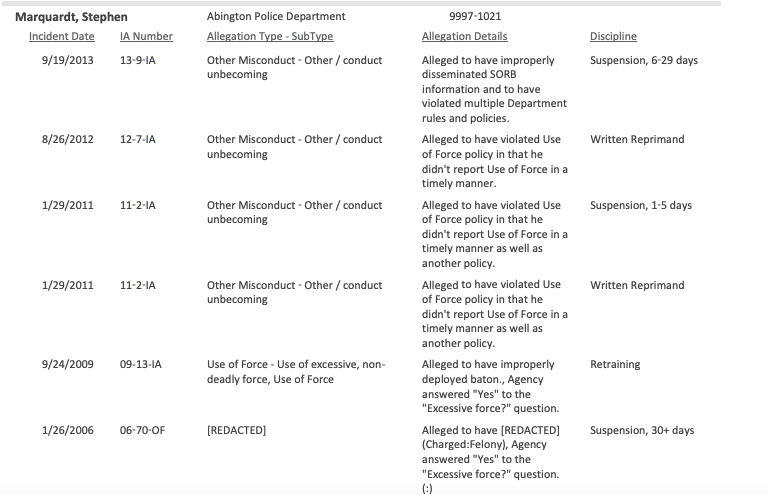By DAMIEN FISHER, InDepthNH.org
Massachusetts residents for the first time can find out if the police officers they pay for protection have even been caught misbehaving on the job.
This week, the Commonwealth released the Peace Officer Standards and Training, or POST, Commission database containing the names of more than 2,100 police officers who have been subject to discipline for sustained allegations of misconduct. The initial database released Tuesday includes records going back to 1984 from 273 Massachusetts law enforcement agencies.
“Over the past year, law enforcement agencies submitted disciplinary records and POST staff has worked carefully to validate these officer records for publishing. We know that releasing this information furthers police accountability and is a matter of great public interest,” said Enrique Zuniga, POST Commission Executive Director.
The POST Commission was created as part of a 2020 criminal reform law passed in the Bay State, and the commission is reviewing records from 440 law enforcement agencies in the state. The records are current through Jan. 1 of this year, and the database will be updated as more records come into the commission.
The database includes the names of the officers disciplined, their departments, the date of the misconduct, a description of the wayward actions the officers engaged in, as well as any disciplinary steps the department took as a result.
The database does not include information about unsustained or unfounded allegations against officers. The misconduct captured in the database includes allegations of: Bias on the basis of race, ethnicity, sex, gender identity, sexual orientation, etc.; Complaints regarding use of excessive, prohibited, or deadly force; Actions that resulted in serious bodily injury or death including officer-involved shootings; Truthfulness or professional integrity (misrepresenting or falsifying reports or evidence); Criminal misconduct (felonies, misdemeanors); and other misconduct (unprofessionalism, policy violations, conduct unbecoming, conformance to rules, etc.)
For example, Gardner Police Officer Thomas Neufell was suspended for one to five days after he allegedly slept on duty on June 13 of 2002, according to the database.
The POST database does not offer further information about the sustained reports, such as links to internal affairs documents, letters of reprimand, or resulting court cases.
Still, the details included in the POST database far exceed the information New Hampshire residents are able to access through the state’s Exculpatory Evidence Schedule.
The New Hampshire EES includes the name of the officer, agency, and date of alleged misconduct. However, the reason for an officer’s placement on the list is typically kept to one or two words. All the New Hampshire public may learn about an officer’s placement on the EES, which is generally considered a career-ending event, is that they engaged in some kind of violations that involves “Truthfulness,” or “Criminal Conduct,” or even “Unknown.”
New Hampshire’s EES, or Laurie List, contains the unreacted names of 195 officers, though more could be added in the coming months. There are still dozens of New Hampshire cops fighting their placement on the EES in court who have not yet been identified. The New Hampshire Department of Justice released the most recent quarterly update to the EES in July. The next release will happen in the fall.





